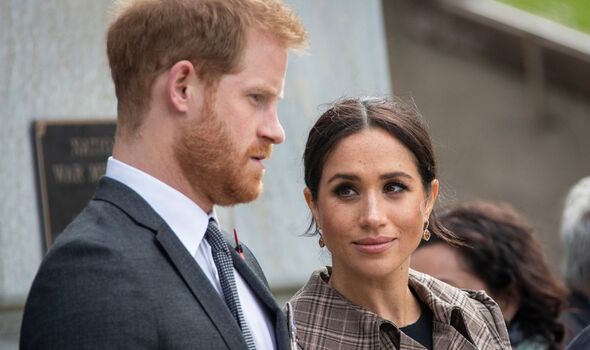Must Read
Controversy Surrounds Prince Harry and Meghan Markle’s Unofficial Nigeria Tour
Prince Harry and Meghan Markle have stirred up controversy with their upcoming unofficial trip to Nigeria, as the Nigerian Defense Headquarters adamantly refuses to acknowledge them by their HRH titles.
The Duke and Duchess of Sussex are set to participate in a cultural event and meet with military personnel, raising questions about the fine line between their royal status and personal endeavors.
Their visit, extended by Nigeria's Minister of Defense following their involvement in last year's Invictus Games, has ignited a debate over their utilization of royal titles and the nature of their engagements.
Critics argue that Harry and Meghan are leveraging their royal connections for personal benefit despite their reduced official standing within the monarchy.
The timing of the tour, scheduled shortly after Harry's attendance at the 10th anniversary of the Invictus Games in Britain, has underscored their ambiguous role in representing the crown.
As the couple embarks on this journey without any senior royals accompanying them, concerns arise regarding protocol adherence and potential diplomatic repercussions.
Expressing gratitude for the invitation, a spokesperson for the couple emphasized their titles as the Duke and Duchess of Sussex.
Nevertheless, apprehensions persist about the potential misrepresentation of their status during the visit.
There are worries that their reception as dignitaries could lead to protocol breaches and cause offense to Nigerian officials, particularly considering the erroneous labeling of the trip as an official royal visit in a press release, further muddling their roles and responsibilities.
The ongoing discussions surrounding the use of titles and the extent of their involvement bring attention to broader implications for the monarchy and its public perception.
In the midst of the intricate dynamics of contemporary royal life, the necessity for transparency and accountability becomes increasingly crucial, urging a resolution regarding the appropriate deployment of titles and representation.
Royal family editor Rebecca English, speaking on the Daily Mrs. Palace secret podcast, highlighted the anticipation surrounding Harry and Meghan's impending journey among those familiar with the couple.
Despite their criticisms of traditional royal protocols, the couple's actions on their unofficial excursions seem to emulate customary royal engagements.
From engaging with indigenous leaders in Canada to being photographed with an anti-monarchy prime minister in Jamaica, and now planning a visit to Nigeria, their deliberate maneuvers appear aimed at challenging both the British government and the British royal family.
While their conduct may currently be viewed more as a disruption than a serious challenge, the unpredictability of its consequences remains a point of concern.
Moreover, the couple's expectation of receiving complimentary security services from Nigeria, a nation grappling with severe poverty, casts a shadow on their philanthropic image.
Their recent visit to Nigeria was marred by backlash from locals, particularly concerning their interactions with marginalized communities.
Accusations of imperious behavior and perceived disengagement have sparked debates about the responsibilities of public figures when interacting with vulnerable populations.
Meghan's strategic alignment of her business and public appearances with royal events suggests a pattern of seeking attention, even if it means overshadowing or conflicting with other royal activities.
Whether orchestrating photo sessions during Harry's absence or launching initiatives to coincide with significant royal occasions, her actions appear calculated to draw the spotlight, potentially at the expense of others.
Ultimately, while Harry and Meghan's ventures and decisions might be interpreted as efforts to assert independence and pursue personal interests, they also risk undermining their credibility and exacerbating tensions within and beyond the royal family.






























